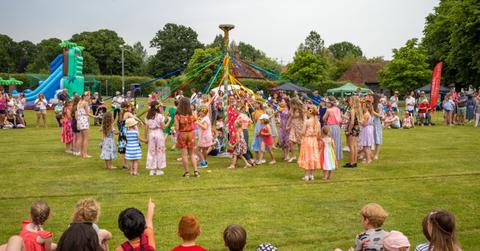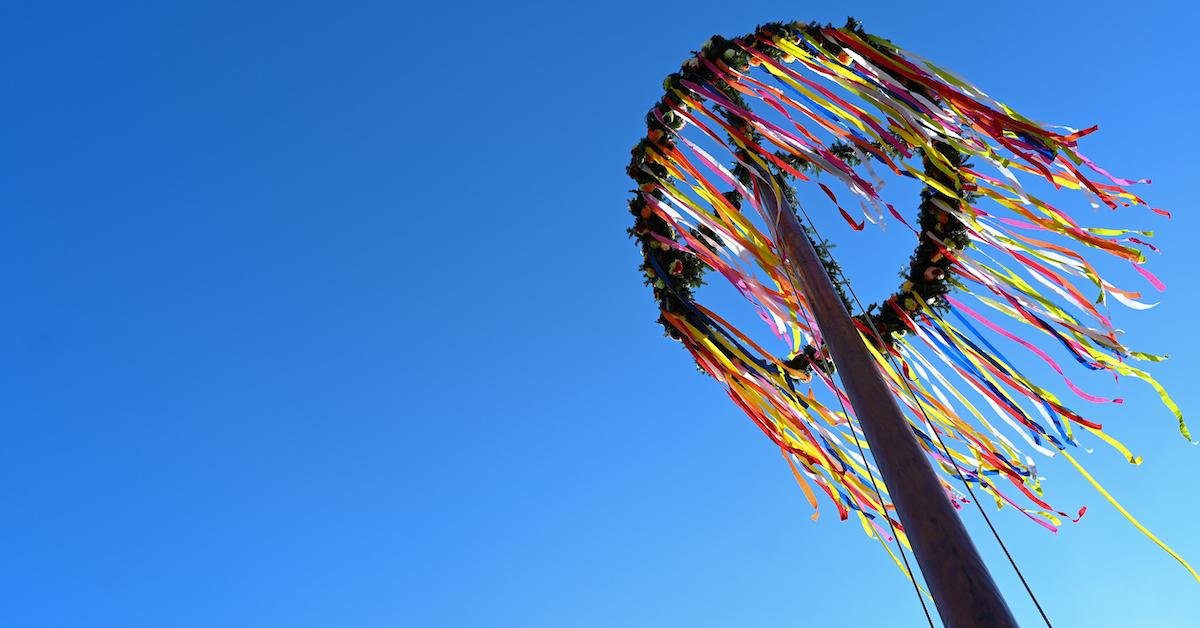Why Is May 1 Called May Day? There's Actually a Lot to Know
While the October 31 holiday is about death, May Day is about fertility, birth, and life. The occasion is usually celebrated with flowers.
Published May 1 2024, 10:27 a.m. ET

Around the world, May 1 signals many things. Perhaps like us, you feel like good weather is finally here to stay and that it won't be long before summer finally arrives.
Or, maybe you're counting down the days until May 4, Star Wars Day.
Less likely? If you live in the U.S., that you are familiar with May Day, which is what May 1 is officially known as around the world. So, what is May Day? It turns out there's a lot to know. Read on for the full details.

Why is May 1 called May Day anyway?
According to NPR, May 1 is known as May Day, or more commonly, International Labor Day.
In the U.S. and Canada, Labor Day falls on September 1. But in many countries around the world, May's Labor Day recognizes workers' historic fight for a shorter work day. As such, the day is also called International Workers' Day.
But before this spring date was tied to workers' rights (more on how this cause is still embraced around the world in a moment) as NPR reports, May Day began as a pagan celebration in Scandinavia and Ireland.
Indeed, May Day is one of the four quarterly holidays from the pagan calendar marking the passage of time, and dating back to the Middle Ages, per USA Today.
In this case, May Day marks the midway point between the spring equinox and the summer solstice.
"It's a beautiful holiday, we're at the height of spring, this is a very happy holiday where one celebrates fertility in nature and in our lives," Helen A. Berger, a sociology professor at Brandeis University told the outlet.
Interestingly, according to Berger, May Day is the opposite of Halloween.
While the October 31 holiday is about death, May Day is about fertility, birth, and life. That's why the occasion is typically celebrated with flowers.
So, what does May Day mean? It depends on where you live — and your heritage.
While May Day is marked by lying out flowers and dancing around a maypole in some customs, elsewhere May Day is a time of worker protests, and many can turn violent.
To mark May Day 2024, people in France and Asia are sharing videos to social media of mass resistance from labor groups and the reaction of law enforcement. Some of the clips are hard to watch.
In Istanbul, large numbers of people have taken to the streets to denounce the escalating cost of living, per AP News. From Paris to Athens, and from Kenya to Iraq, workers' unions are calling for fair pay and better conditions for workers, with police being forced to respond with tear gas, water cannons, and arrests in many cases.
So there you have it. May Day seems to commemorate two polar opposites.
On the one hand, pagan tradition sees people dancing and decorating with flowers.
On the other hand, workers are calling for equality and recognition of their plight, and violence often results.
In the end, it's all a bit confusing what one has to do with the other and the answer is: Maybe nothing.